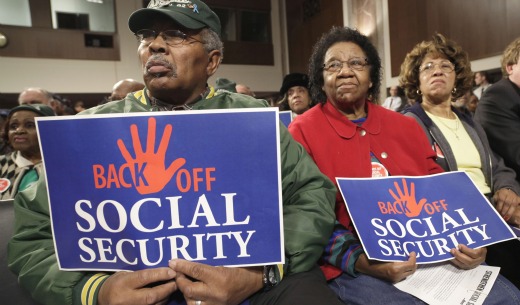
Weekend discussions by members of the congressional committee responsible for identifying $1.2 trillion in budget cuts yielded no last-minute deals as the Thanksgiving deadline approaches.
According to several television news reports Sunday morning Democrats and Republicans were negotiating only on how they would soon announce, some time today, their failure to reach a deal.
Sen. Patty Murray, D-Wash., said on Sunday the Bush tax cuts for the rich were the “sticking point” preventing the debt committee from reaching a deal to reduce the deficit by $1.2 trillion over the next 10 years.
“The wealthiest of Americans, those who earn over $1 million a year, have to share too. There’s that line in the sand, and there aren’t any Republicans willing to cross it,” Murray said.
Labor and its allies have consistently opposed what they say is the entire premise upon which the super committee has been operating: the main way to close the deficit is through cuts in government spending, rather than by raising taxes on corporations and the super rich.
Republicans on the committee favor closing the deficits entirely by cutting spending, including Medicare, Medicaid and Social Security.
Democrats on the committee have spoken about a variety of formulas, including one that calls for $3 of budget cuts for every $1 of tax increases on corporations and the wealthy. The labor movement and others have said that with either approach, working families would feel the pain, while the rich and powerful would pay nothing more.
Nobel Prize-winning economist Paul Krugman wrote in the New York Times that the failure of the super committee to reach a deal is a “good thing.”
“Any deal reached now would almost surely end up worsening the economic slump. Slashing spending while the economy is depressed destroys jobs, and it’s probably even counterproductive in terms of deficit reduction, since it leads to lower revenue both now and in the future,” he wrote.
If the super committee fails to come up with an alternative plan by Thanksgiving, the cuts will hit defense and domestic programs equally. Stock market analyst Marshall Auerback noted on AlterNet, “those cuts won’t begin to go into effect until January 2013,” two months after the 2012 presidential election.
Auerback is among analysts who say that, while failure of the super committee to reach a deal may provoke negative reaction in the stock markets it could, in spite of that, make the difference between sluggish, moderate growth in the economy and a double dip recession.
If the super committee enacted huge cuts, these analysts note, economic growth would slow or could stop altogether because of the increased amount of income taken out of the economy. Cuts in Social Security, for example, would result in decreased sales, a key propellant for the economy. Layoffs by businesses affected would spiral.
Labor economists say that claims by Republicans notwithstanding, the growing deficit itself results from loss of jobs and their accompanying tax revenue, not from increased government spending.
“The economics of the super committee, indeed that of virtually all of the mainstream Washington policy establishment,” writes Auerback, is “predicated on the economic equivalent of medieval blood-letting. Continuing to draw blood from the U.S. economy via ongoing cuts in government expenditure at a time of high unemployment and underused resources will ensure the patient’s death, not recovery.”
Photo: Eddie Bostic of Baltimore, left, and other audience members, listen to Democratic senators speak at a “Back Off Social Security” rally on Capitol Hill in Washington, March 28th. (AP Photo/J. Scott Applewhite)

MOST POPULAR TODAY


Zionist organizations leading campaign to stop ceasefire resolutions in D.C. area

Communist Karol Cariola elected president of Chile’s legislature

Afghanistan’s socialist years: The promising future killed off by U.S. imperialism

High Court essentially bans demonstrations, freedom of assembly in Deep South






Comments